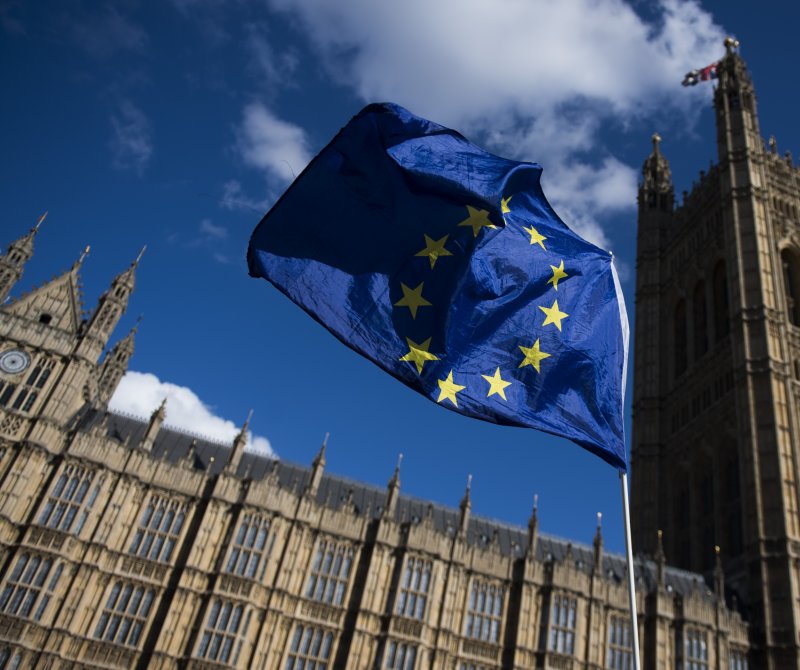The British grid won't go dark post-Brexit, but it might not be very efficient, House of Lords hears. File photo by Will Oliver/EPA-EFE
Jan. 29 (UPI) -- The British grid won't go dark after departure from the European Union, though the gas and electric market may be less efficient, parliament's review found.
The British government under Prime Minister Theresa May continues to chart its course out of the EU. A study from the House of Lords said that too means leaving the EU's Internal Energy Market.
"Our inquiry revealed strong support across the energy sector to continue to participate in the IEM, but this is unlikely to be possible if the government pursues its policy of leaving the single market and the jurisdiction of the Court of Justice of the European Union," the report read. "The U.K. will need to continue to trade energy with the EU in order to meet demand, but if such trade takes place outside the IEM it is likely to be less efficient, potentially raising costs for consumers."
Some consumers already saw a hike in gas prices last year when British Gas raised rates by as much as 18 percent last year, eight months after a 7 percent increase. After a crack in December on the Forties Pipeline system, which carries about 40 percent of offshore production, the wholesale price increased again because of tighter supply conditions and high demand.
About 80 percent of all the British homes are powered by natural gas. About 43 percent of that demand is met by production from the North and East Irish Seas, while 44 percent comes from pipelines from Europe and Norway. The rest enters the British economy as liquefied natural gas.
The House of Lords, meanwhile, said the British economy can't meet its own heat and power needs with domestic supplies, meaning it's increasingly dependent on energy imports.
Researchers at Chatham House told the panel that trade will continue between the United Kingdom and the rest of Europe in the post-Brexit environment, but trade efficiency could present risks.
Energy U.K., the trade group representing hundreds of suppliers and producers, told the panel the grid won't collapse, but it might not function to the benefit of consumers.
"It is very unlikely that the 'lights will go out', as both gas and electricity will physically continue to flow on a commercial basis, [but] without a strong trade agreement or a type of membership that provides access to the Internal Energy Market ... it is likely we will be operating in a less efficient market," the trade group stated.















